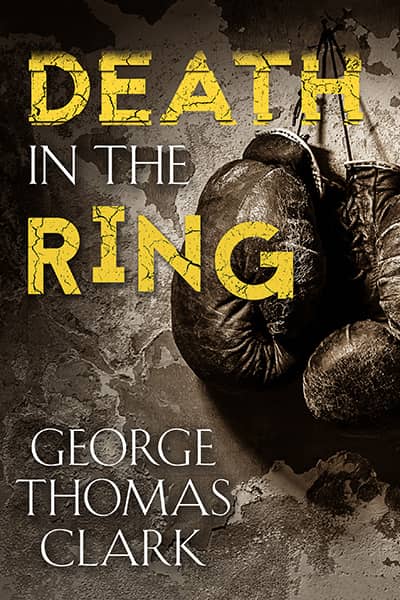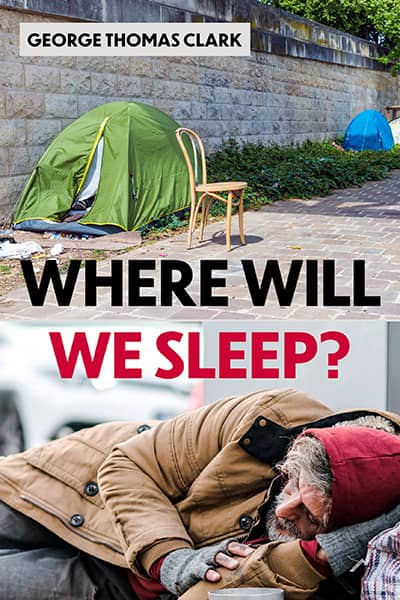Hurricane Katrina Pushes Woman East then West
September 27, 2005
At age nine Linda began babysitting and cleaning homes, quit high school at sixteen, had her first child two years later, married a man who bombarded himself with drugs, divorced him, and began moving the other way. For eight years she managed residential properties of a private investor, and eventually lived in one of his rentals, a large custom house, making more money than she ever expected. Then her boss offered a strategic investment plan: since prices in Bakersfield, California have been increasing at a nation-leading pace, let’s look for bargains in the South.
Linda embraced the opportunity to move to Pascagoula, Mississippi and become “chief cook and bottle washer.” She searched for apartments. She examined houses. She did impact studies of Mississippi and was shocked by low wages and high rates of poverty and illiteracy. But she was also enticed by residential properties cheap for an investor who began selling his California holdings and aiming funds at Pascagoula. Within a few months, guided by Linda, three apartment complexes and two houses were purchased. Linda lived in one of the apartments and managed everything in the portfolio.
While real estate was familiar, cultural attitudes in the South were often challenging: some men hired to refurbish and maintain the properties declared they wouldn’t take orders from a woman. Linda said fine, either do it this way or take your tools and leave. Plenty of diligent workers stayed. At the same time Linda was being seduced by the charm of many Southerners, their soft, slow way of speaking, their less frenetic style of living. Pascagoula, at rest on the Gulf of Mexico, was becoming home and she didn’t want to leave. The old timers said it wasn’t necessary. They’d survived many tropical storms and hurricanes. This one two days away would be “just another blow in the wind.” Board up your windows and go buy some canned food and bottled water. My goodness, Miss Linda, your place is sitting way up on those two-foot cement blocks. Stay and we’ll get together and drink and have some Hurricane Parties.
Linda’s seventeen-year old son focused on the news and told her about radio and television reports Katrina was going to be a Category 5 disaster, the biggest in a century, and they had to flee. The day before the hurricane hit, in rain and thirty mile-an-hour winds, they took two friends, renters from the apartment, and began driving east on Interstate 10 toward Tallahassee where Linda had booked a motel reservation. Nine hours later they were in Florida’s capital city, inland and north of the coasts and a haven from storms. Thousands of others were also there, scurrying to find lodging. Linda’s motel room had already been rented. They went to another motel and another and another and thought they’d be sleeping in the car. Ultimately, after about fifteen inquiries, they found a vacant room.
Relatively mild rain stroked Tallahassee and offered no indication of wind and water exploding to the west in Alabama, Mississippi, and Louisiana. Fellow lodgers and other refugees in Tallahassee shared their stories. One lady from New Orleans had panicked and jumped in her car and driven straight to Florida, failing to notify her husband at work or her children at their grandmother’s house. Now she didn’t know if they had survived. Phone service was out in the most devastated areas and no one could reach family members. Television meanwhile was pounding them with images of corpses and demolished buildings and flooded streets. Tension intensified, anger erupted. Linda’s “friends” threatened to kill her son. They needed to get back. Everyone had to find out who was alive and what happened to their homes.
Linda called her boss. He authorized her to use company credit to rent a trailer and buy generators, roofing supplies, tools, and eight hundred dollars of food. They loaded up and, with their uneasy friends, headed west on Interstate 10. Only one lane was open on the bridge over Mobile Bay. A retired naval destroyer had been hurled onto the shore. Parts of three shattered oil derricks gnawed at the base of the bridge, others punctured the land. They saw big trees ripped out and stacked on other trees. In some places it looked like someone had “picked them up and laid them out like a row of carrots.” By the side of the road, which had become a huge campsite, people were crying and hugging each other and shouting, “My house is gone.” There weren’t any medical services. And they still couldn’t get through to anyone on the phone.
After driving on the freeway at a walker’s pace, they ultimately entered Pascagoula which Linda said looked “like war.” Military trucks loomed all around and alligators patrolled the road. People were “staring dead stares like their souls had been ripped out of their bodies.” Winds had torn through town at one hundred twenty miles an hour. Cars were turned over. Some buildings were completely destroyed, only the slabs left. Others had their roofs ripped off. Some were blown over on their sides. People had no food, water, or power. The whole scene was “morbid.”
Some of the apartments where they’d been planning Hurricane Parties were demolished. Linda assumed those people had died and been washed away. She dropped off her friends at their place. It still had about three inches of water everywhere inside. At her apartment three trees had blown over and big branches lay on the roof. She needed help to push the front door open because her furniture and debris from the coast had blown inside against the door. Now there was no water in the house but it had rushed in at five-and-a-half feet; everything at that point and below was destroyed or contaminated and covered by green and black mold. She lost three cars, a motorcycle, photos of her kids, a stereo, a TV, everything but a few items in the highest cabinets.
As police, coroners, and other rescue workers spray painted orange circles on residences and inside the circles marked how many people had been found alive and how many dead, Linda shared her food and water then began taking pictures for her boss. He needed to document all damage for his insurance company. By phone from Bakersfield he directed Linda to stay at a company apartment further inland. Linda and other workers tore out carpets and began bleaching the cement floors. She was assigned to stay in the model unit where the carpet was unscathed and the beds intact.
“The model unit was in back,” she said. “Up front one guy told me he could hear his roof slowly beginning to tear before being ripped away. Shingles scattered like cards in the wind.”
Linda’s not entirely friendly friends told others she had a truck full of supplies. Several people jumped on the vehicle while another hit the rear door with an axe and said, “Open up or I’ll kill you.” She and her son hopped into the cab and drove to Mobile where they returned merchandise to another hardware store of the same franchise. The company received credit, just as the boss had insisted.
Back in the apartments in Pascagoula, a neighbor told Linda: “If you make any noise, I’m gonna slit your throat.”
“I helped people all I could,” Linda said. “On the way back from Mobile, I’d bought some more food and water, and we shared it, too. I also kept taking photos and making lists of stuff destroyed. But everyone was always yelling and fighting. My son got so distressed he just began to lie in bed all the time, looking at the ceiling, not doing anything. I thought I was having a nervous breakdown.
“Finally, when phone service returned, I got a call from my daughter that my ex-husband was dying near Palm Springs. That helped me decide what to do. My son and I had to take four flights to get to California. I had to get out of that disaster. There’s mold in my lungs and I’m having trouble breathing. I’m not feeling close to a hundred percent. I have a lot less energy. And I’m uncertain about people and places. I know I need to get out and start doing stuff.”
At the clean and modern Salvation Army facility in Bakersfield, where this interview took place, Linda has received food, towels, soap, and other supplies. She’s thankful to be staying with relatives but said, “My boss, the same guy who sent me to Pascagoula, told me there’s no work for me in Bakersfield since he’s been selling his property here. He said, ‘It’s not promising. You’re going to have to find something else.’ He didn’t even want to give me the key to the supply storeroom here. And I was his coordinator. He’s turned on me. I’ve spent all my money on hotels and travel and other things after Katrina. I need a job.
“The boss said, ‘You can go back to that hell hole and have a job.’ I’m not going. Maybe I’ll have to take him to court to be reimbursed.”














